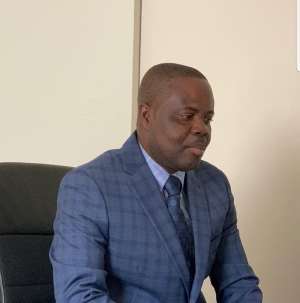
Ghana is a nation rich in resources and brimming with potential, yet its development remains shackled—not by lack of ability, but by the choices of its leadership. A self-serving culture has emerged, one where the mantra of “I the Leader” reigns over the collective good of “We the People.” This deeply entrenched mindset has left citizens deprived of dignity, opportunity and the full promise of a better life.
Unlike models of leadership seen in more people-centered democracies, such as the United States, where public service is often grounded in accountability and citizen empowerment, Ghanaian leadership has too often become a symbol of personal gain over national progress. As a result, development is not just delayed—it is denied, corruption is cultured and greed is unknowingly acclimatized. The consequences are clear: paralyzed institutions, widening inequality and everyday suffering in the midst of untapped potential. And until this leadership culture shifts, the story of Ghana’s progress will remain one of promise unfulfilled. This is serious in Ghana today, a culture has taken root that celebrates “I the Leader” over “We the People.” A culture that is opposite the mindset of the leaders in the United States of America.
Leadership is meant to be a sacred duty: the power to improve lives and build better systems for all. When that duty is betrayed, misery multiplies. What we are witnessing is not mismanagement—it’s abandonment. A refusal to serve. A devotion to self-interest over national interest. And if this culture continues, no blueprint or manifesto will bring the change Ghanaians need. Leadership failure affecting the lives of real citizens. This is not about governance. It is about people or citizens abandonment.
Some sleep in mud houses—politicians build mansions. In many rural regions like the Upper East and parts of Savannah, families live in mud huts prone to collapse during rainy seasons. Meanwhile, MPs and ministers acquire luxury real estate in gated Accra neighborhoods, some owning multiple properties as “investment portfolios.”
Some live under leaf roofs—politicians demand massive loans and lavish allowances. Thatched homes, made of straw or palm leaves, offer little resistance against Ghana’s tropical storms. Yet, in Parliament, debates rage not about roofing sheets for the poor, but about who deserves car loans of GH¢600,000.
Some can’t afford two meals a day—politicians squander public funds. Mothers in farming villages boil cassava peels for dinner. Children go to school on empty stomachs. Meanwhile, public funds mysteriously vanish, with Auditor-General reports uncovering misappropriation that rarely leads to accountability.
Some suffer generational poverty—politicians misuse the people’s money. Poverty remains unsolvable when funds meant for development are spent on inflated contracts or white elephant projects. The people remain trapped in hardship while politicians enrich themselves at the state’s expense.
Some are seriously ill with no help—politicians fly abroad for treatment. Basic clinics lack beds, oxygen, or even painkillers. Yet, senior officials routinely board flights for medical procedures in Dubai, London, or South Africa, without investing in systems they’ve abandoned.
Some villages have no roads or water—yet these remain “low priority.” Towns are cut off during rainy seasons. Women walk miles to scoop water from muddy streams shared with livestock. These aren’t rare stories; they’re everyday realities in places like Sissala, Krachi, or Bongo.
Some can’t afford education—politicians proudly send their children abroad. Despite the promise of free education, many students drop out due to hidden costs—uniforms, books, transportation. Meanwhile, politicians boast on social media about their children graduating from Ivy League or UK universities.
Some have never seen GH¢20,000—politicians steal millions. A local trader or seamstress may never accumulate even GH¢5,000 in savings. At the same time, headlines reveal public officials hoarding hundreds of thousands of dollars in foreign bank accounts.
Some are born and confined to villages without clean water or electricity—politicians take first-class vacations abroad. These citizens may never leave their communities, yet their taxes fund retreats and international “workshops” in luxury destinations. Their lights stay off while city towers shine through the night.
Some are mentally distressed—developmental hopelessness fuels desperation. Without access to mental healthcare, many turn to spiritual camps or prayer centers, often suffering in silence. In some places, the lack of opportunity has bred a new crop of self-proclaimed prophets—not from calling, but from despair.
Teachers and police officers can’t afford a Toyota Corolla—politicians rotate luxury SUVs. Those who serve in classrooms and communities earn so little that they can’t afford a basic car. Meanwhile, politicians get new V8s every term, paid for by public coffers, even during economic “crises.”
Some suffer injustice daily—while politicians and their allies live above the law. When ordinary citizens break the law, consequences follow. But when politically connected individuals engage in corruption or abuse, they are shielded by legal loopholes, partisanship, or deliberate inaction.
This is not governance. It is citizens’ abandonment. Leaders knowing the problem and not solving it, show the kind of leaders we have elected to lead us. Until leaders embody empathy, courage, and accountability, progress will be cosmetic—glossy on the outside, hollow within. The time has come to reject the culture of political privilege and demand a return to public service rooted in justice and care. The people deserve more than promises, they deserve fairness, dignity and a future.
By
Gaddiel R. Ackah
[email protected]
U.S. Navy veteran. Lives in U.S.A.
Social Advocate for economic independence and ethical leadership. His work spans education, business, leadership and creative arts, making him a multifaceted influencer.
Author of Many Leadership and Inspiring Books.
Competent Leadership: Becoming Successful Our Happiness. Some Choices Matter Respect Matters Faith Wipes Tears The Power of Faith.


